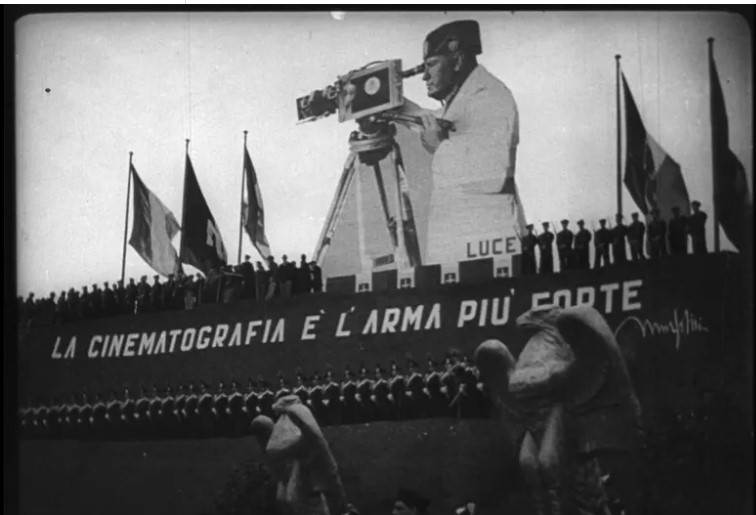a documentary essay on faking history through cinema: the grisly founding myth of fascism
Watching a work by British film critic and historian Mark Cousins is actually like going to a university class: his movies are called ‘documentary essays’ because they are lessons on filmmaking in which he uses his own voice over, movie clips and illustrative footage of locations. His most notorious work is THE STORY OF FILM: AN ODYSSEY (2011), a 15-episode film which takes viewers through film and filmmaking history, from the late 19th century to today, with a particular emphasis on world cinema. THE STORY OF FILM: AN ODYSSEY is now available on RaiPlay.

Cousins’s dynamic documentary essay March on Rome, with his distinctive collage of photos, clips and narrative voiceover, returns us to the grisly founding myth of European fascism for its 100th birthday, Benito Mussolini’s ‘Marcia su Roma’ in 1922: his ragged march of blackshirts from Naples to the capital. Particularly, Cousins expertly deconstructs A Noi! by Umberto Paradisi, the propaganda film that created the mythology of the march and exaggerated its size and popular acclaim: A Noi! is an example of the writing we can see in the picture above: la cinematografia è l’arma più forte. Cousins shows that this documentary was a complete fake, and points out the way this faking of an historical event was made. A Noi! illustrates a false image of the March that has remained in history, a false myth that has later been corrected by serious historians: The March on Rome was a flop, it was the march of a bunch of stranded blackshirts while il duce was sitting comfortably in Milan. As we now know, it was a weak and coward king, Victor Emmanuel III, who gave Mussolini a chance to get to power legally, a king that represented the so- called poteri forti who wanted to use fascism to maintain power: the landowners (latifondisti), the industrial middle-classes, the Church. Mussolini was a pawn in their game which later went out of control… we know the rest of the story pretty well.
This event took place one century ago, but are we sure this film is only about the past? Have we really come to terms with our fascist past? What about our new government? That’s why this film is very much about today too. (373 words)
Click here for The Guardian‘s review for a more detailed analysis of this film.